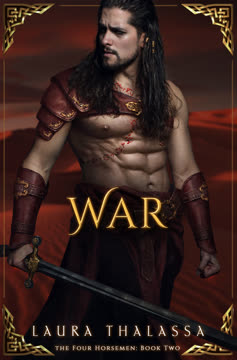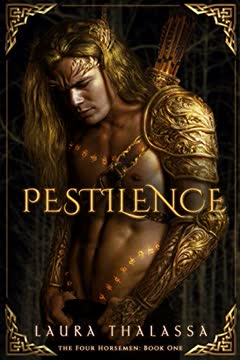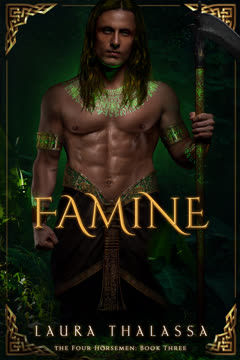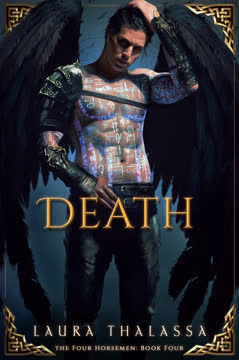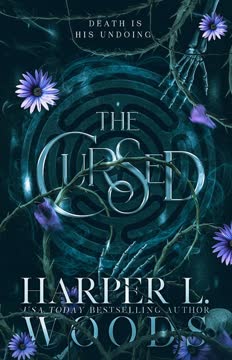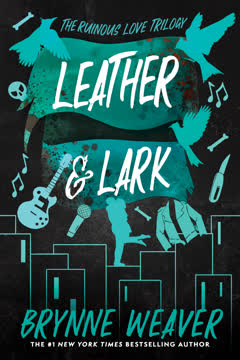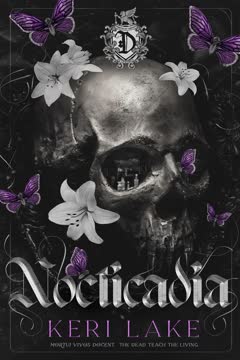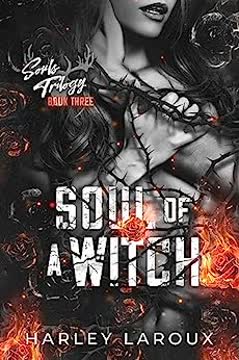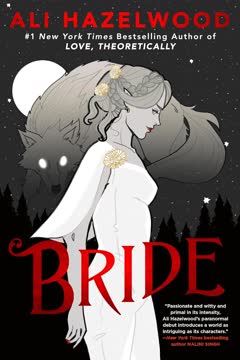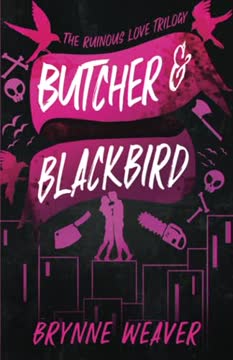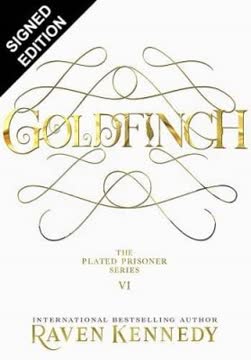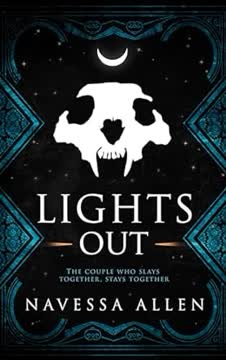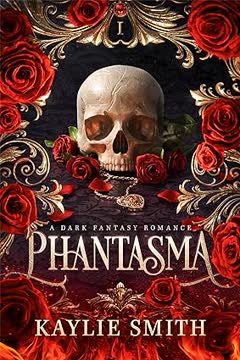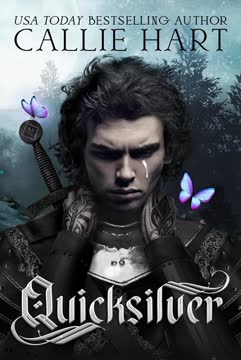Plot Summary
Apocalypse's Unwanted Daughter
Miriam Elmahdy survives in a Jerusalem devastated by the Four Horsemen of the Apocalypse, scavenging and crafting weapons to survive. Her life is a daily struggle, haunted by loss and the trauma of the world's collapse. The city is tense, rumors swirling of War's approach. Miriam's rules for survival—bend the rules, stick to the truth, avoid notice, listen to instincts, be brave—are all that keep her alive. But as War's army invades, her reality is upended, and she is forced to confront the brutality and randomness of survival in a world where hope is a rare and dangerous thing.
The Red Horseman Arrives
The arrival of War, the second Horseman, is cataclysmic. Miriam witnesses the city's destruction, the streets running with blood as War's supernatural army slaughters indiscriminately. She tries to save others, but is ultimately captured by War himself, who claims her as his wife. War is both terrifying and mesmerizing, a force of nature who cannot be killed, and who sees something in Miriam that even she cannot understand. Her defiance and courage catch his attention, setting the stage for a relationship as volatile as the world around them.
Captured by War
Miriam is taken to War's camp, where she is both a captive and a curiosity. War's army is a brutal, patriarchal society, and Miriam's status as War's "wife" offers her a strange protection. She is forced to witness executions and the culling of prisoners, and must choose between death and allegiance. Her refusal to swear loyalty to War's cause marks her as different, and War spares her life, intrigued by her spirit. Miriam's struggle to maintain her autonomy in the face of War's power becomes a battle of wills.
Death or Allegiance
The camp's prisoners are given a choice: join War's army or die. Miriam chooses death, refusing to become a tool of destruction. War intervenes, saving her from execution and freeing her from her bonds. He claims he does not want her as a soldier, but as something else—his wife, his equal, his challenge. Miriam is thrust into a world where survival means navigating the desires and dangers of a supernatural warlord, and where her own humanity is both her greatest weapon and her deepest vulnerability.
The Warlord's Wife
War insists Miriam is his wife, a claim she fiercely rejects. Yet, he protects her from the worst of his men, and she is forced to live in his camp, adapting to its brutal rhythms. War is both captor and protector, his interest in Miriam growing as she refuses to submit. Their interactions are charged with tension, attraction, and mutual fascination. Miriam's skills as a weapons maker earn her a place in the camp, but her heart remains guarded, even as War's obsession with her deepens.
Surviving the Camp
Miriam learns to navigate the camp's dangers, forging uneasy alliances with other women and keeping her wits sharp. She witnesses the cruelty of War's justice and the casual violence of his soldiers. Yet, she also sees moments of humanity—women supporting each other, small acts of kindness, and War's own strange code of honor. Miriam's defiance becomes a quiet rebellion, and her presence begins to change War, even as she struggles with her own growing feelings for him.
A Dangerous Attraction
The tension between Miriam and War becomes impossible to ignore. War is relentless in his pursuit, but also unexpectedly gentle, revealing a capacity for tenderness that surprises Miriam. Their relationship is a battlefield of its own, marked by passionate arguments, stolen moments, and a slow, reluctant surrender to desire. Miriam is torn between her hatred for what War represents and the undeniable pull she feels towards him. War, for his part, is both tormented and transformed by his feelings for Miriam.
The Road to Ruin
War's army marches across the land, leaving destruction in its wake. Miriam is forced to travel with War, witnessing firsthand the horrors of his campaign. She sees cities fall, innocents slaughtered, and the dead rise at War's command. Yet, she also sees War's struggle with his own nature, his fascination with her, and his growing conflict between duty and love. The journey is both a physical and emotional crucible, testing Miriam's resolve and forcing her to confront the possibility of change—even in a horseman of the apocalypse.
Blood and Mercy
Miriam's attempts to save lives during War's invasions put her at odds with both War and his army. She risks everything to warn cities, save children, and defy War's orders. Her compassion becomes both her greatest strength and her greatest liability. War is both enraged and captivated by her defiance, and their relationship becomes a microcosm of the larger battle between destruction and redemption. Miriam's choices force War to confront the consequences of his actions—and the possibility of mercy.
Surrender and Defiance
The relationship between Miriam and War reaches a breaking point. Miriam's refusal to surrender her will, even as she surrenders her body, becomes a catalyst for change. War is forced to choose between his divine purpose and his love for Miriam. Their passion is both destructive and redemptive, and the lines between captor and captive, lover and enemy, blur. Miriam's courage and War's vulnerability create a new possibility: that even the harbinger of apocalypse can be changed by love.
The Price of Survival
Miriam's actions—her attempts to save others, her defiance of War, her refusal to be complicit—have consequences. She is punished, isolated, and forced to confront the cost of her choices. War, too, is changed by her influence, struggling with guilt, shame, and the dawning realization that he cannot have both love and war. The camp fractures, alliances shift, and the true cost of survival becomes clear: to save others, Miriam may have to sacrifice herself.
Battle for Ashdod
The invasion of Ashdod is a turning point. Miriam fights to save civilians, sabotages War's army, and risks her life to send warnings. War's power is on full display as he raises the dead to finish what his army began. The horror of the massacre, and Miriam's inability to stop it, shatter her. War's mercy is tested, and Miriam's hope is nearly extinguished. Yet, even in the ashes, the seeds of change are sown.
The Dead Will Rise
War unleashes his most terrifying weapon: the dead. Cities are wiped out, survivors hunted, and hope seems lost. Miriam witnesses the full extent of War's power and the depth of his conflict. Her compassion and courage stand in stark contrast to the apocalypse unfolding around her. The horror of the dead rising becomes a symbol of the world's descent—and the possibility that even the worst can be redeemed.
Escape and Consequence
Miriam's attempts to escape War's grasp—and her own feelings—lead to betrayal, violence, and heartbreak. She is forced to confront the reality that there is no true safety, no true escape, in a world ruled by the horsemen. War's own struggle with his purpose and his love for Miriam reach a crisis point. The consequences of their choices ripple outward, changing the fate of everyone around them.
The Cost of Compassion
Miriam's compassion is both her salvation and her undoing. She saves lives, but cannot save everyone. War is forced to confront the pain he causes, and the possibility that love may demand the ultimate sacrifice. The lines between good and evil, right and wrong, blur. Miriam's willingness to risk everything for others becomes the catalyst for War's transformation—and the beginning of the end for his reign of terror.
Night of Violence
The camp is torn apart by violence, betrayal, and revenge. Miriam is attacked, War's authority is challenged, and the fragile order of the camp collapses. War's response is both brutal and revealing, exposing the depth of his feelings for Miriam and the limits of his power. Miriam's survival becomes a question of will, courage, and the willingness to trust—even when trust seems impossible.
Healing and Humanity
War's care for Miriam in the aftermath of violence reveals a new side to him: one capable of healing, tenderness, and even guilt. Miriam's recovery is both physical and emotional, and her relationship with War deepens. The possibility of change—of redemption, of love, of a future—begins to take root. Yet, the scars of the past linger, and the threat of betrayal remains.
The Horseman's Change
War is transformed by his love for Miriam. He begins to spare innocents, to question his purpose, and to imagine a different future. Miriam's influence is undeniable, and the camp itself changes as War's violence gives way to mercy. Yet, the threat of betrayal looms, and War's own men plot against him. The possibility of peace is fragile, and the cost of change is high.
The Army's Betrayal
War's own phobos riders betray him, luring him into a trap and killing him. Miriam, pregnant and desperate, risks everything to save him. The ultimate sacrifice is demanded: War must surrender his sword, his immortality, and his purpose to bring Miriam—and their unborn child—back to life. In doing so, he becomes mortal, choosing love over war, and redemption over destruction.
Love and Surrender
War and Miriam are reunited, both changed by their ordeal. War is now mortal, his power surrendered, his purpose transformed. Together, they choose a life of love, family, and hope. The world is still scarred, but the possibility of redemption—both personal and collective—remains. War's surrender is both an end and a beginning, a testament to the power of love to change even the most unchangeable.
The End of War
War and Miriam build a new life together, raising their daughter and seeking out Miriam's lost family. The world is still haunted by the threat of the remaining horsemen, but War's transformation offers hope. The couple's reunion with Miriam's mother and sister is a moment of healing and closure, a symbol of the possibility of restoration after devastation. War's journey from destroyer to protector is complete.
Redemption and Reunion
The story ends with the promise of new beginnings. War and Miriam, once enemies, are now partners in life and love. Their family is reunited, and the world, though still threatened by famine and death, is changed by their example. The lesson is clear: even in the darkest times, love, courage, and the willingness to change can redeem the world—and ourselves.
Characters
Miriam Elmahdy
Miriam is a young woman forged by loss and apocalypse, her childhood stolen by the arrival of the Horsemen. Resourceful, fiercely independent, and guided by her own moral code, she is both a survivor and a rebel. Her compassion is her greatest strength and her greatest vulnerability, driving her to risk everything for others. Miriam's relationship with War is a battle of wills, desire, and defiance. She refuses to surrender her autonomy, even as she is drawn to War's power and vulnerability. Through her courage and humanity, she becomes the catalyst for War's transformation, proving that even the most broken world can be changed by love.
War (The Second Horseman)
War is the embodiment of violence, conquest, and judgment. Inhumanly strong, immortal, and terrifying, he is both a force of nature and a man tormented by his own purpose. War is fascinated by Miriam's defiance and compassion, and his obsession with her becomes the seed of his own redemption. As he is changed by love, War is forced to confront the cost of his actions, the possibility of mercy, and the meaning of surrender. His journey from destroyer to protector is both epic and intimate, a testament to the power of love to change even the most unchangeable.
Zara
Zara is a fellow captive in War's camp, a woman marked by loss and resilience. She becomes Miriam's closest friend and confidante, offering support, humor, and perspective. Zara's own journey—from vengeance to survival to hope—mirrors Miriam's, and her relationship with her nephew Mamoon becomes a symbol of the possibility of new beginnings. Zara's loyalty and courage are tested, but she remains a voice of hope and humanity in a world gone mad.
Hussain
Hussain is one of War's elite soldiers, a man shaped by violence and loss. He is both kind to Miriam and complicit in the worst of War's atrocities. Hussain's eventual betrayal of War is driven by fear, guilt, and the belief that redemption is impossible for men like him. His death at Miriam's hands is both tragic and inevitable, a reminder that even the most complex characters are shaped by the choices they make.
The Phobos Riders
The phobos riders are War's most trusted and lethal soldiers, men and women who have given themselves over to violence and survival. They are both protectors and threats, their loyalty to War absolute—until it is not. Their eventual betrayal of War is a testament to the corrosive power of violence and the difficulty of redemption. They serve as both antagonists and cautionary examples, embodying the dangers of losing one's humanity.
Deimos
Deimos is War's blood-red horse, a creature as inhuman and terrifying as his master. Fiercely loyal, intelligent, and nearly indestructible, Deimos is both a weapon and a companion. His bond with War is deep, and his presence is a constant reminder of War's otherness. Yet, as War changes, so does Deimos, becoming a symbol of the possibility of transformation.
Mamoon
Mamoon is Zara's young nephew, a child orphaned by War's campaign. His survival—thanks to Miriam's intervention and War's reluctant mercy—becomes a symbol of hope and the possibility of a future beyond violence. Mamoon's presence humanizes both Zara and Miriam, and his rescue is a turning point in War's journey towards redemption.
Miriam's Mother and Sister (Lia)
Miriam's mother and sister are the ghosts that haunt her, symbols of all she has lost. Their eventual reunion is a moment of healing and closure, a testament to the possibility of restoration after devastation. Their presence in the story underscores the importance of family, memory, and the enduring power of love.
Thanatos (Death)
Thanatos, the fourth Horseman, is the embodiment of death and the final judge of souls. He is both a force of nature and a brother to War, his power absolute and his mercy rare. Thanatos's role in War's resurrection is both pivotal and symbolic, representing the possibility of grace, forgiveness, and the end of violence.
Pestilence
Pestilence is War's brother and predecessor, the harbinger of plague and the first to be stopped by love. His story is a parallel to War's, a reminder that even the most destructive forces can be changed by compassion and connection. Pestilence's fate offers hope for the future—and a warning of the challenges yet to come.
Plot Devices
Apocalypse as Intimate Backdrop
The novel uses the apocalypse not just as a setting, but as a crucible for personal transformation. The collapse of civilization strips away the illusions of safety, forcing characters to confront the raw realities of survival, morality, and love. The supernatural elements—War's immortality, the rising of the dead, the power of the horsemen—are used to heighten the stakes and explore the limits of humanity. The apocalypse becomes both a literal and metaphorical battlefield, where the struggle for survival mirrors the struggle for redemption.
Enemies-to-Lovers Romance
The central relationship between Miriam and War is built on the classic enemies-to-lovers trope, but with a supernatural twist. Their dynamic is a constant battle of wills, with attraction and hatred fueling each other. The romance is both a source of tension and a vehicle for change, forcing both characters to confront their deepest fears and desires. The relationship is used to explore themes of power, autonomy, and the possibility of change—even for the most unchangeable.
Surrender and Redemption
The motif of surrender—both literal and metaphorical—runs throughout the novel. Miriam's refusal to surrender her will is both her greatest strength and her greatest vulnerability. War's demand for surrender is both a test of power and a plea for connection. Ultimately, both characters must surrender: Miriam to love, War to humanity. This surrender is not defeat, but transformation, and it becomes the key to redemption for both individuals and the world.
The Power of Choice
The novel repeatedly foregrounds the importance of choice, even in a world ruled by fate and supernatural forces. Miriam's choices—to fight, to love, to forgive—are acts of agency in a world that seeks to strip it away. War's choice to surrender his sword and his purpose is the ultimate act of free will, a rejection of destiny in favor of love. The power of choice becomes a beacon of hope, suggesting that even in the darkest times, we are not powerless.
Foreshadowing and Symbolism
The novel uses foreshadowing and symbolism to deepen its themes. Miriam's scar, shaped like the Angelic symbol for surrender, is both a mark of trauma and a prophecy of transformation. War's sword is both a weapon and a burden, the surrender of which marks the end of violence. The repeated motif of the hamsa, the Hand of Miriam, becomes a symbol of protection, hope, and the enduring power of love. The rising of the dead, the breaking of the camp, and the final surrender all serve as narrative echoes, tying the personal to the cosmic.
Narrative Structure
The novel's structure moves from the epic (the fall of cities, the march of armies, the fate of the world) to the intimate (the relationship between Miriam and War, the struggle for survival, the search for family). The use of alternating moments of violence and tenderness, despair and hope, creates a rhythm that mirrors the emotional journey of the characters. The story is both a love letter to resilience and a meditation on the cost of survival.
Analysis
Laura Thalassa's War is a post-apocalyptic romance that uses the grand scale of the end times to explore the most intimate questions of love, power, and redemption. At its heart, the novel is a meditation on the possibility of change—both personal and collective. Through the relationship between Miriam and War, Thalassa interrogates the nature of violence, the cost of survival, and the transformative power of compassion. The apocalypse is not just a backdrop, but a crucible that strips away the illusions of safety and forces characters to confront the raw realities of their own hearts. The novel's central message is that even in the darkest times, love, courage, and the willingness to change can redeem the world—and ourselves. The story refuses easy answers, acknowledging the complexity of forgiveness, the difficulty of change, and the enduring scars of trauma. Yet, it offers hope: that even the most broken world can be healed, and that even the most unchangeable can be transformed by love. In the end, War is both a thrilling romance and a profound exploration of what it means to be human in the face of apocalypse.
Last updated:
Review Summary
War receives mostly positive reviews, with readers praising the unique storyline, character development, and intense romance. Many found it an improvement over the first book, Pestilence. Critics appreciated the complex relationship between War and Miriam, as well as the exploration of morality and humanity. Some readers felt the book was too long and repetitive, while others had issues with the setting and portrayal of certain themes. Despite mixed opinions, most fans eagerly anticipate the next installment in the Four Horsemen series.
